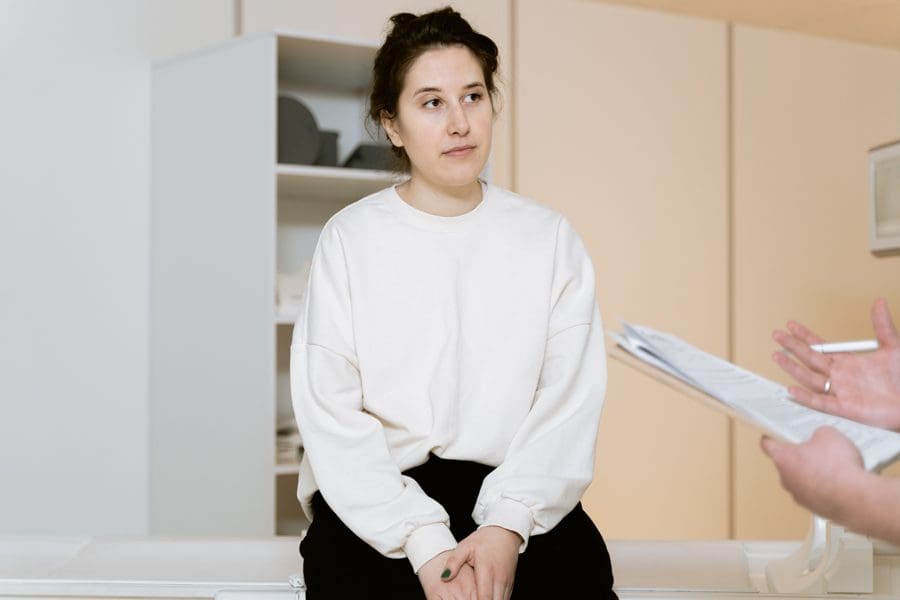Health Anxiety: How It’s Defined & How to Recover
Do you ever get scared when something different happens to or within your body?
Imagine you are experiencing a headache. Headaches happen all the time whenever we feel sick, stressed, or did not have our usual morning coffee. However, if you’re wrestling with health anxiety, you could catastrophize this everyday headache. You could end up not getting out of bed or spending hours searching the internet for all of the causes of a headache. Once a term like “brain tumor” pulls up, this could send your anxiety through the roof.
Health anxiety can present as either a Somatic Symptom Disorder or Illness Anxiety Disorder. Both disorders cause significant anxiety and distress and a trained psychotherapist can help you distinguish your symptoms and identify your diagnosis. In both disorders, fear interferes with being able to function or enjoy your daily life. Your energy is focused on making sure nothing abnormal happens to your body. With the COVID-19 pandemic occurring, fear of leaving the house, constantly checking your symptoms, or avoiding in-person contact likely seems justified and your fears may be running wild.
To remain balanced and mentally healthy, it’s crucial to gain a clear understanding of health anxiety and learn how to decrease your symptoms should you have them.
Are You Misinterpreting Symptoms?
Our bodies have a tendency of presenting us with uncomfortable symptoms. It’s just the process of them changing over time. You may occasionally feel an ache or soreness in a certain part of your body. Your vision may change, you may have imperfect balance, and more. It does not always mean that there is something wrong.
Health anxiety misinterprets these bodily sensations and fluctuations. Some people with health anxiety may distrust their health professionals examinations, preferring to believe their own feelings and research. They may spend a great deal of time and money seeking second or third opinions.
Do You Constantly Believe the Worst?
Health anxiety may cause you to catastrophize, or to think the worst of your presumed symptoms based on personal experiences or information from other sources. For example, you may think an earache means you have COVID-19 after learning on the news that an earache is a new symptom. You may rush to take a test and find out you are negative but remain unconvinced.
You may also make assumptions about heredity and contagion. For example, you may devote an inordinate amount of time to thoughts about relatives with cancer, worrying that you will inherit it. This constant distress about illnesses or diseases that you could develop in the future can lead to a preoccupation about your health that hinders your functioning, joy, and relationships in the present.
Is Your Mind Playing Tricks on You?
If you are struggling with your health anxiety, you may recognize that the fears that you are ruminating about are likely “all in your head”, however you may experience bodily symptoms or sensations that convince you otherwise. Symptoms such as stomachaches, rapid heartbeat, muscle tension, and chest pressure are common sensations that may provoke your fear about your health. You may seek reassurance from a doctor. While reassurance will help you temporarily, it is only a matter of time before your anxiety tells you to make another appointment. As such, these symptoms do not mean you are sick or dying. They just mean that your anxiety is alive and active.
What You Can Do
After a doctor rules out your health concerns, consider giving cognitive behavioral therapy a try. It is the most effective form of therapy for health anxiety as it focuses on the link between thoughts and behaviors. When we define a situation’s meaning, like a stomachache pointing to stomach cancer, it can of course bring anxiety to the situation and cause us to fear for our health and wellbeing.
Cognitive-behavioral therapy can challenge your negative thoughts and encourage healthier alternatives. Acquiring a healthier mindset can help you approach your fear differently and increase your ability to tolerate your anxious thoughts.
By participating in counseling for your health anxiety, you will learn how to correct your thinking errors and increase your coping skills so that you can focus less on worrying about your health, and focus more on enjoying life again. Please contact us at Mindworthy Therapy, located in Schaumburg, if you are ready to gain relief from your health anxiety.
Home
Services
Insurance
Therapists
Contact
Mindworthy Therapy
info@
mindworthytherapy.com
847-497-5730
1933 N. Meacham Rd.
Suite 200
Schaumburg, IL 60173

Designed By:
Farm it Out! Design, Inc.

